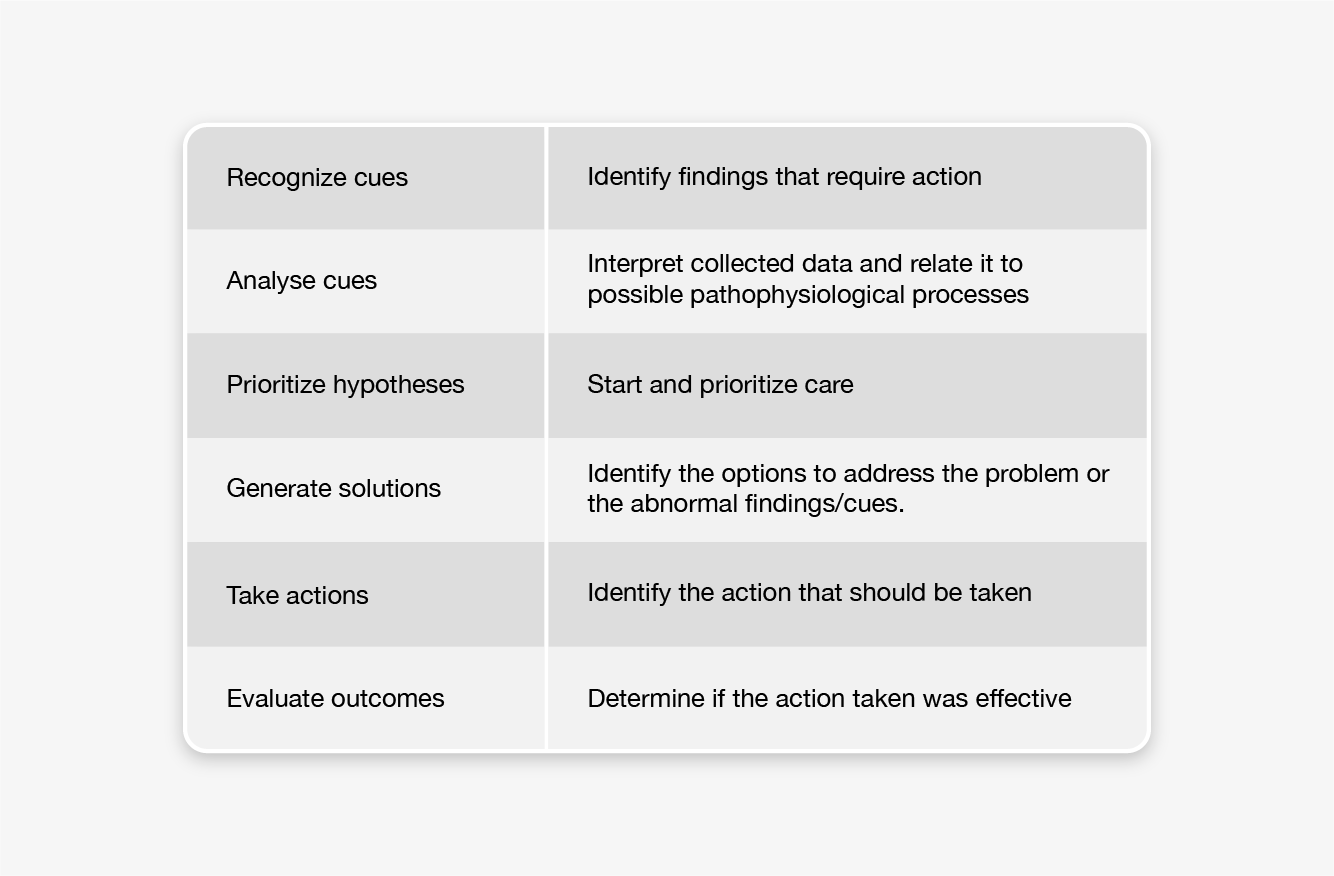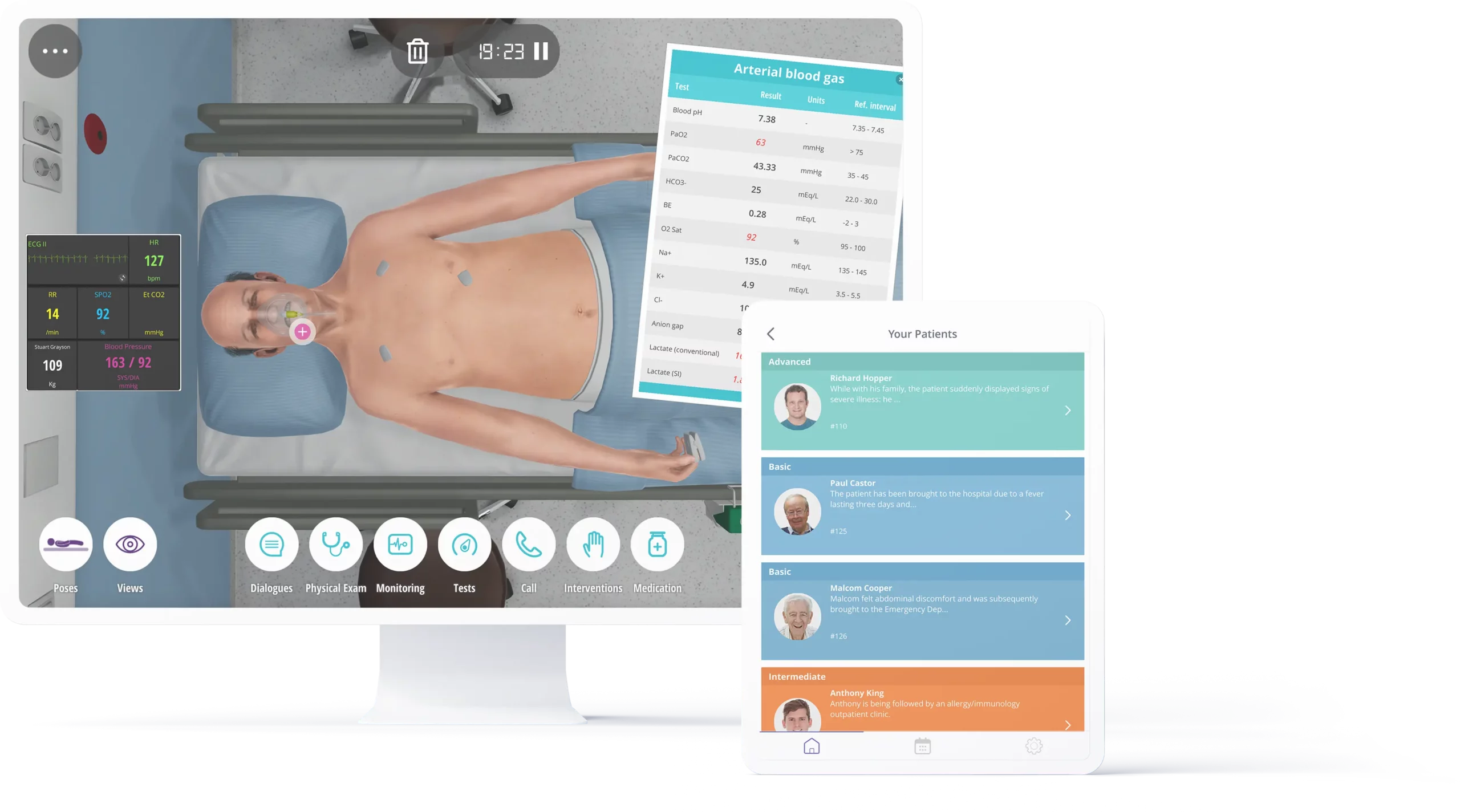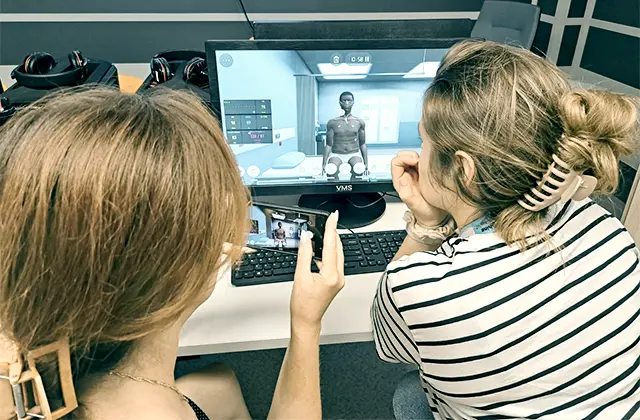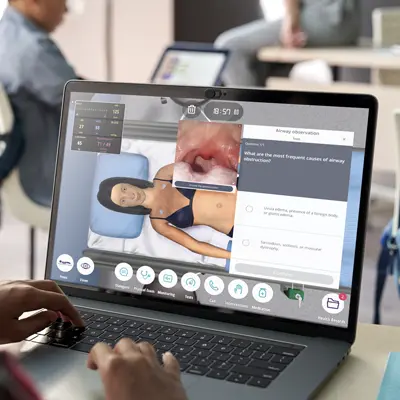The Power of Clinical Judgment in Nursing
Understanding the power of clinical judgment and its impact on patient safety is a crucial aspect of aligning education, practice, and nursing regulation. [1]The implications of poor clinical judgment can lead to avoidable patient morbidity and mortality due to errors in judgment. Therefore, it is important to prioritize improving clinical judgment to prevent such outcomes.[1]
Clinical Judgment Model Definition
The term “clinical judgment skills” was defined in 2009 by Benner and Tanner [4] as “the ways in which nurses come to understand the problems, issues, or concerns of clients and patients, to attend to salient information, and to respond in concerned and involved ways”.
According to the growing demands of the complex clinical practice in nursing [5], namely the increasing responsibilities of new nurses and the idea that they must make increasingly complex decisions during patient care, the National Council of State Boards of Nursing, or NCSBN, developed a clinical judgment model that builds on the nursing process, entitled the NCSBN Clinical Judgment Measurement Model (NCJMM). [3]
This evidence-based model emphasizes cognitive skills that are necessary for making the correct clinical judgments.
These skills include:

Attributes of a Sound Clinical Judgment
Clinical judgement is an important learning outcome in nursing education that must be prioritized and developed[8].
A sound clinical judgment in nursing practice encompasses essential attributes such as:
- Holistic assessment: Thorough assessment enables prompt identification of cues and slight modifications in the patient’s status.[5]
- Critical thinking and clinical reasoning: Both are complex, multi-faced, and dynamic processes [5][7] used to make a decision, [5] seeking, acquiring, evaluating, analyzing, combining, and developing information to increase self-awareness and apply this knowledge through innovation and
risk-taking. [6] - Practical wisdom: The ability to make decisions in specific situations by applying general ethical principles. It is a supreme intellectual virtue acquired through experience and expertise [5]
- Intuition: A comprehension of clinical situations through experience is essential, especially in unpredictable scenarios, and forms an integral part of healthcare decision-making, even though it may not always be explicitly recognized.[5]
- Reflection: Learning from positive and negative experiences to improve your clinical judgment.
A Sound Clinical Judgment Through Body Interact
Body Interact transforms nursing practice by integrating essential elements of clinical judgment, empowering nurses to conduct holistic assessments, analyze several cues, and make confident decisions.
With real-time feedback and intuitive guidance, nurses navigate patient scenarios seamlessly, ensuring swift and accurate responses. Body Interact fosters a culture of growth, emphasizing reflective practice and continuous learning from positive and challenging experiences.
Body Interact represents the future of expert nursing care, where intuition meets expertise, and every decision leads to exceptional patient outcomes!

Discover how you can develop Clinical judgment in Nursing Practice with Body Interact!
See more here
References
- [1]- Mary Ann Jessee. An Update on Clinical Judgment in Nursing and Implications for Education, Practice, and Regulation. Journal of Nursing Regulation (2021)Volume 12, Issue 3. ISSN 2155-8256 , https://doi.org/10.1016/S2155-8256(21)00116-2.
- [2]Martin JE, Tyndall D. Effect of Manikin and Virtual Simulation on Clinical Judgment.
J Nurs Educ. 2022 Dec;61(12):693-699. doi: 10.3928/01484834-20221003-03. - [3] Donna D. Ignatavicius ,Linda Silvestri.Getting Ready for the Next-Generation NCLEX® (NGN): How to Shift from the Nursing Process to Clinical Judgment in Nursing. Elsevier Education (2023). Available from: https://evolve.elsevier.com/education/expertise/apply-clinical-judgment/ngn-transitioning-from-the-nursing-process-to-clinical-judgment/
- [4]Benner P, Tanner C, Chesla C. Expertise in nursing practice: caring, clinical judgment, and ethics. New York: Springer Publishing Company; 2009.
- [5]Manetti, W. (2018). Sound clinical judgment in nursing: A concept analysis. Nursing Forum. doi:10.1111/nuf.12303
- [6] Jiménez-Gómez MA, Cárdenas-Becerril L, Velásquez-Oyola MB, Carrillo-Pineda M, Barón-Díaz LY. Reflective and critical thinking in nursing curriculum. Rev Lat Am Enfermagem. 2019 Dec 5;27:e3173. doi: 10.1590/1518-8345.2861.3173.
- [7]Giuffrida S, Silano V, Ramacciati N, Prandi C, Baldon A, Bianchi M. Teaching strategies of clinical reasoning in advanced nursing clinical practice: A scoping review. Nurse Educ Pract. 2023 Feb;67:103548. doi: 10.1016/j.
- [8]Høegh-Larsen, A.M., Gonzalez, M.T., Reierson, I.Å. et al. Nursing students’ clinical judgment skills in simulation and clinical placement: a comparison of student self-assessment and evaluator assessment. BMC Nurs 22, 64 (2023). https://doi.org/10.1186/s12912-023-01220-0
By Ana Santa – Educational Content Manager/ Registered Nurse








